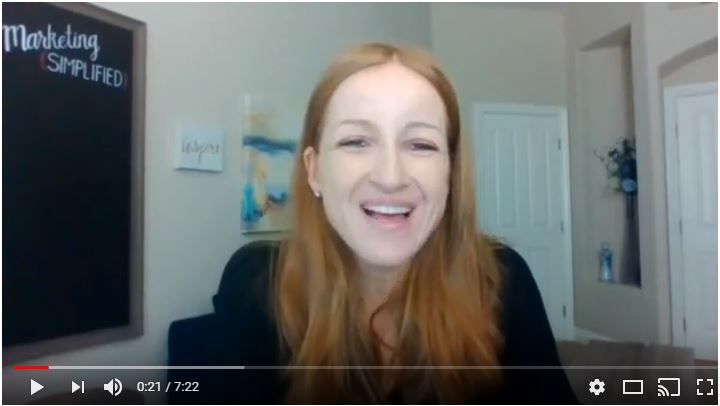Engagement is by far the most important thing to achieve with your fans and followers when it comes to online marketing. Why? Because conversions happen when a potential customer trusts you. And to achieve trust, you need to have a relationship with your potential customers. In marketing, we call this the “know, like, trust” process. You have to know someone before you like someone, and you have to like someone before you trust someone. This all happens as we build relationships with one another.
Asking questions is a great way to build relationships but we often ask questions in the exact opposite (and wrong) way than we should be asking them to achieve the engagement (and thus relationships) that we want. Don’t worry though, a couple of simple fixes can get your questions back on track.
For more information, view the video embedded here. Or, if you’re the type who likes to read and run, a summary is below. Enjoy!
0:00: Introductions.
0:41: Importance of online engagement.
Review of previous weeks’ content.
1:18: Overview of the “know, like, trust” process (see introductory paragraph on this post).
2:35: The two biggest mistakes we make when we ask questions.
1) We ask people to imagine the future.
2) We ask people to talk about abstract situations.
An example of this is a question like, “What do you hope to achieve today?” or, “How are you doing today?” Both of these types of questions usually end in one or two word answers and at best one sentence answers. Regardless, they definitely don’t end in a quality exchange or rich information.
3:10: We can fix these two mistakes by asking people to do the opposite of what we usually ask them to do.
1) Ask people to recall a moment in the past.
2) When asking people to recall a moment in the past, prompt them to recall something specific.
For example, let’s say a personal trainer specializes in helping people overcome chronic pain through exercise. The kind of ineffective question people accidentally ask (which is rooted in the future and abstract), would be something like this:
“Does your chronic back pain make you worry about your future?”
The answer is likely yes and the conversation is over.
A better question would be about something specific in the past so that you 1) engage your potential customer and 2) have the potential to move forward in the conversation. An example of this is:
“When is the last time your chronic back pain flared up and how did it affect the activity you were engaged in?”
Now a conversation starts because the customer or potential customer can visualize an exact moment that has already happened and tell you about it.
3:56: A secondary benefit of asking more engaging questions is the detailed information you get from customers.
You can then include some of that information into your content as examples, which will make you seem more relatable to your audience. Why? Because one ideal customer’s experience is likely to be similar to another. Have you ever wondered how a marketer seemed to know exactly what you’re thinking? It’s likely because their content included examples of experiences their ideal customers shared with them.
4:31: So let’s review.
The secret to asking highly engaging questions has two parts. First, ask questions based on recalling information from the past instead of imagining a future scenario, and second, ask your customer or ideal customer to tell you about a specific example rather than give you an abstract generality.
5:44: This week I challenge you to ask a highly engaging question to your audience on your social media channels and tell me how it goes.
6:39: Next week we will build on how to use engaging questions in other areas of digital marketing, like email marketing.
Have a great week and I will see you back here soon!











